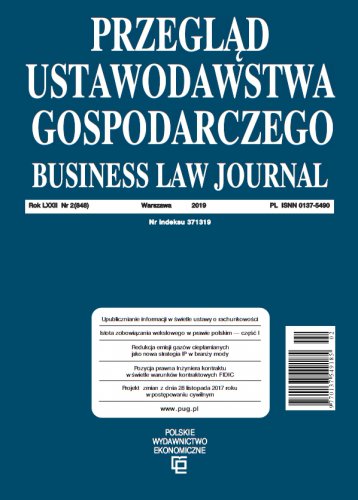Exceeding the business risk limit is an evaluative premise for incurring liability, the fulfilment of which is treated in jurisprudence as a violation of the law in itself, resulting in incurring liability by a member of the management board. It was established to allow board members to make more courageous (which of course does not mean completely free) decisions. Nevertheless, when analysing the structural elements that define the limits of business risk, one may have doubts whether it is actually a structure constituting a specific countertype of responsibility, or whether it paradoxically leads to the extension of this responsibility. As a consequence, the author proposes to pay attention to the known law construction of actions within the limits of permissible risk, which, as shown in the text, can be successfully applied to the relationship between a management board member and a company, setting the latter a safe area for making decisions and implementing them in the area covered by acting for the benefit of the company. The aim of the article is to show that only the use of the structure of business risk assessment in the activity of a management board member, while referring to the structure of acting within the limits of acceptable risk, allows for a clear delimitation of the board member's responsibility, guaranteeing him proper freedom in making business decisions.
Keywords: liability for damage; economic risk; limits of acceptable risk; member of the management board; corporate bodies

